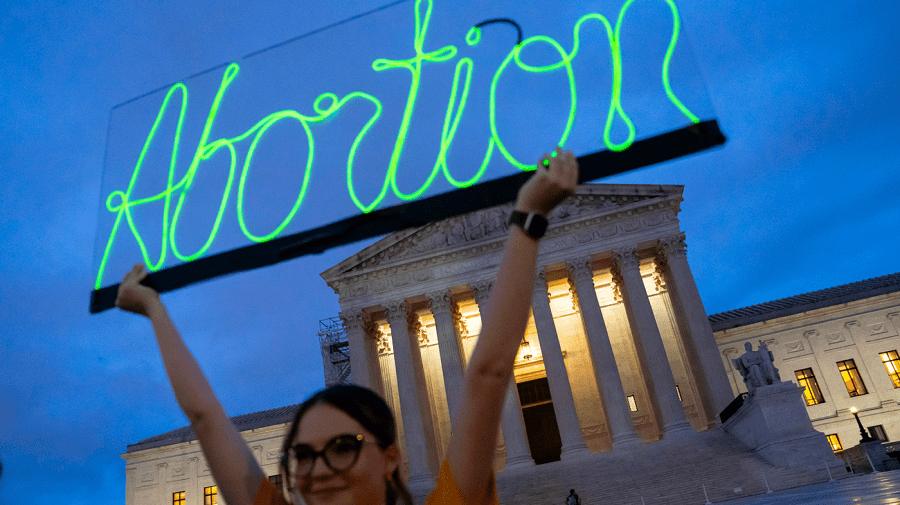A North Dakota judge struck down the state’s near-total ban on abortions Thursday, ruling the law was unconstitutionally vague and infringed on women’s medical freedom.
“The North Dakota Constitution guarantees each individual, including women, the fundamental right to make medical judgments affecting his or her bodily integrity, health, and autonomy, in consultation with a chosen health care provider free from government interference,” District Judge Bruce Romanick ruled.
“Pregnant women in North Dakota have a fundamental right to choose abortion before viability exists.”
Advocates said they expect the ruling to take effect in the coming weeks, meaning abortion will be legal in the state.
However, there are no freestanding abortion clinics left in North Dakota.
The Red River Women’s Clinic, one of the plaintiffs in the lawsuit, was the last such clinic in the state, but it moved from Fargo to Moorhead, Minn., in 2022 following the Supreme Court’s Dobbs decision that overturned Roe v. Wade.
North Dakota Attorney General Drew Wrigley (R) said he would appeal Thursday’s decision.
“The State of North Dakota will appeal this ruling because Judge Romanick’s opinion inappropriately casts aside the law crafted by the legislative branch of our government and ignores the applicable and controlling case law previously announced by the North Dakota Supreme Court,” Wrigley said in a statement.
Romanick, who was reelected in a nonpartisan race in 2018, also said the law was unconstitutionally vague because the medical exceptions defined in the statute were unclear and violated the due process of physicians.
A physician can exercise “reasonable medical standard” for a medical exception but would still be at risk of going to jail if another doctor disagrees.
“As written, it can have a profound chilling effect on the willingness of physicians to perform abortions,” Romanick wrote.
He previously ruled against the state’s abortion ban last year, saying the constitution includes the right to obtain an abortion “to preserve the woman’s life or health.”
As a result, North Dakota lawmakers revised the law to ban abortion in all cases except incest or “gross sexual imposition” if the woman has been pregnant for less than six weeks, or to prevent death or a serious health risk.
Meetra Mehdizadeh, staff attorney at the Center for Reproductive Rights, praised the ruling while also acknowledging its limits.
“We cannot ignore the reality on the ground. Right now, there are no abortion clinics left in North Dakota. The ban forced them to close their doors and relocate across state lines, and so even though abortion is now legal, there’s still very limited access to care for those who need it,” Mehdizadeh said.
But she told reporters Thursday that medical providers now have clarity about how to treat pregnant patients with potentially severe complications.
“Doctors don’t have to guess as to what the law allows them to do, they can rely on their own best judgment and consultation with their patients to determine whether a patient who is experiencing pregnancy complication should be able to get an abortion,” Mehdizadeh said.
“There’s not going to be this ambiguity and fear for doctors … and pregnant patients who are experiencing pregnancy complications will not be forced into a position where they either have to wait to get sicker to qualify for the exception or leave the state to get timely medical care.”

